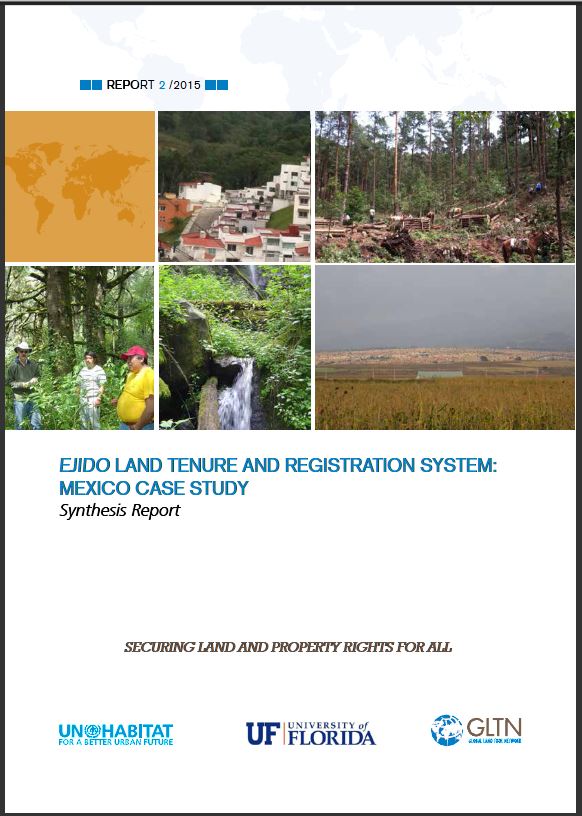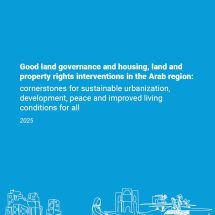 This report summarizes a case study of the Mexican ejido community tenure system. Mexico was selected for this case study because of the rich history and extensive scale of the country’s community land tenure and registration systems. This community system covers 52% of the area of Mexico, roughly equivalent to the size of Egypt, and comprises over 30 000 communities. The ejido system emanated from the Mexican revolution (1910-1917) and represents a case where the customary system of land has been largely integrated into the statutory system. The case study is particularly relevant to countries which are trying to accommodate customary land systems within a formal land registration system.
This report summarizes a case study of the Mexican ejido community tenure system. Mexico was selected for this case study because of the rich history and extensive scale of the country’s community land tenure and registration systems. This community system covers 52% of the area of Mexico, roughly equivalent to the size of Egypt, and comprises over 30 000 communities. The ejido system emanated from the Mexican revolution (1910-1917) and represents a case where the customary system of land has been largely integrated into the statutory system. The case study is particularly relevant to countries which are trying to accommodate customary land systems within a formal land registration system.
Reviewers: Samuel Mabikke, Danilo Antonio and Paola Siclari
Development Cooperation Agency (Sida)












